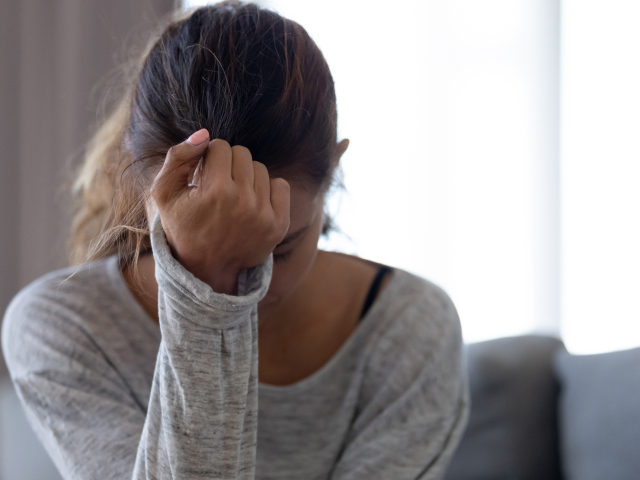More than 60 percent of women who had abortions “report high levels of pressure to abort from one or more sources, and those same women report higher levels of subsequent mental health and quality of life issues,” according to a new peer-reviewed study from the Charlotte Lozier Institute published in Cureus medical journal.
Dr. David Reardon, a Lozier Institute associate scholar, director of the Elliot Institute, and lead author of the study, said:
Abortion clinics cannot claim to be pro-woman while at the same time allowing the majority of their clients to be pressured into unwanted abortions. Our national study finds that women who feel pressured to have abortions are significantly more likely to blame their abortions for contributing to a decline in mental health, increased disruptions in their daily lives, and more frequent episodes of grief and loss.
In a country torn by political debate over abortion, surely these findings underscore one point on which we should all be able to agree,” Reardon continued. “No woman should ever feel pressured into accepting an unwanted abortion. Clearly, abortion clinics need to provide better pre-abortion screening and counseling in order to prevent unsafe and unwanted abortions.
In the study, entitled “Effects of Pressure to Abort on Women’s Emotional Responses and Mental Health,” women were asked to rate the degree of pressure to abort, if any, from five sources, including a male partner, family members, other people, financial concerns, and other circumstantial pressures.
Women who reported being pressured into an abortion either by a male partner or a family member also had higher levels of:
- Negative emotions due to their abortion
- Interference with daily life, work, or relationships
- Intrusive thoughts, including flashbacks to the abortion
- Frequent feelings of loss, grief, or sadness about the abortion
- Increased levels of stress answering questions about the abortion
Researchers evaluated 1,000 surveys of women between the ages of 41 and 45. The completion rate was 96 percent with 22.6 percent reporting a history of abortion, “which aligns with national estimates of the percentage of women who will have abortions in their lifetime,” according to The Charlotte Lozier Institute, which was launched in 2011 as the education and research arm of Susan B. Anthony Pro-Life America. Participants who reported an abortion were “four times more likely to drop out of the survey once they faced additional questions about their abortion experience compared to women who did not report an abortion…”
Reardon said:
Even with our high participation rate, women with a history of abortion reported higher levels of stress completing the survey than other women, which is probably why they were most likely to drop out before completing the survey. This is why surveys about abortion will always underreport negative outcomes. It is precisely the women feeling the most negative emotions who are most likely to not want to talk about it.
Tessa Longbons, senior research associate at Lozier Institute and co-author of the study, added that coercion to have an abortion “can have long-lasting mental health repercussions.” She said:
Abortion does not empower women. Quite the opposite, the abortion industry enables and gives support to those who seek to control women. his coercion can have long-lasting mental health repercussions, and now that the FDA allows the abortion pill to be dispensed without a woman ever seeing a doctor, the abortion industry’s coercion problem may only get worse.
“Women deserve to be fully informed, and they deserve better than abortion,” she added.
The discussion portion of the study recommended that “perceived pressures to choose abortion should be assessed before an abortion to better guide risk assessments, decision-making, and analyses of post-abortion adjustments in light of these risk factors.” The discussion portion reads:
A history of abortion, especially when there was pressure to abort, is associated with more stress completing questionnaires touching on abortion experiences and with a higher dropout rate, a finding that is consistent with the view that abortion surveys are likely to underrepresent the experiences of the women who experience the most stress and negative reactions to their abortions.
“Abortion providers should screen for perceived pressures to abort and be prepared to offer counseling and services that will help women to avoid unwanted abortions,” the section continues.
The study is reportedly the first in a series of planned studies designed to investigate the prevalence and impact of abortions that “conflict with women’s own maternal preferences and moral beliefs,” according to institute.

COMMENTS
Please let us know if you're having issues with commenting.